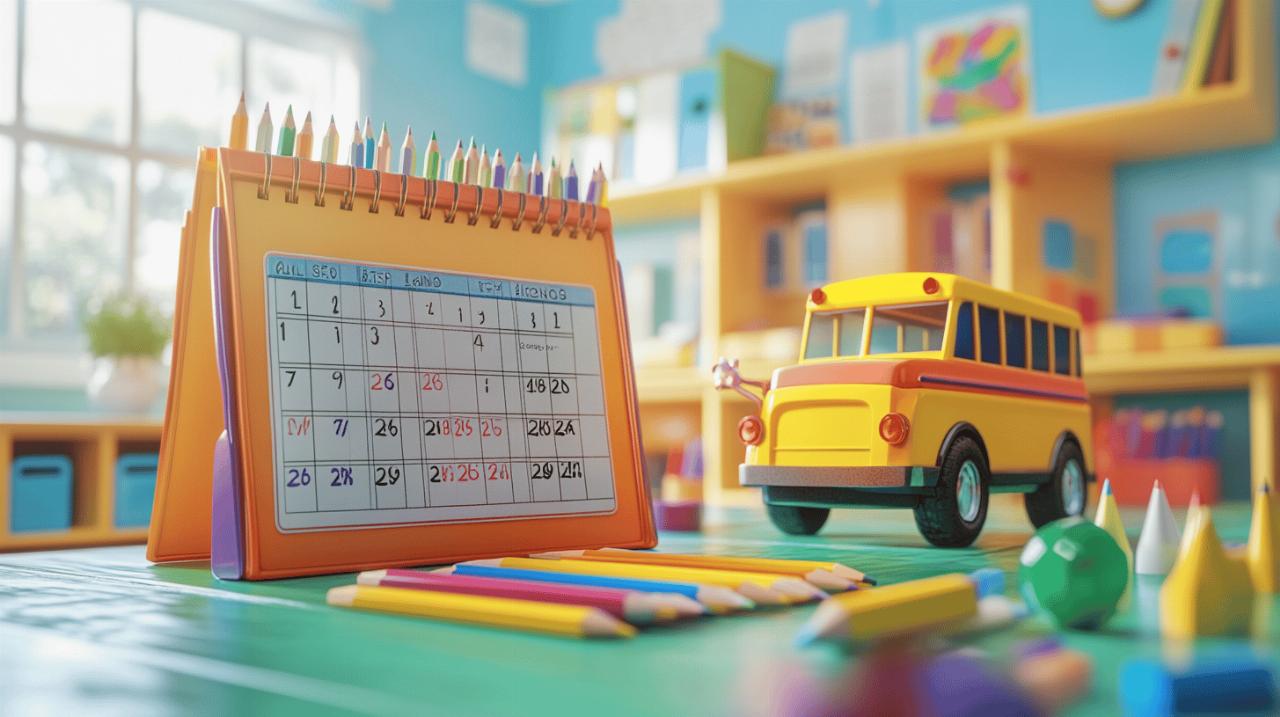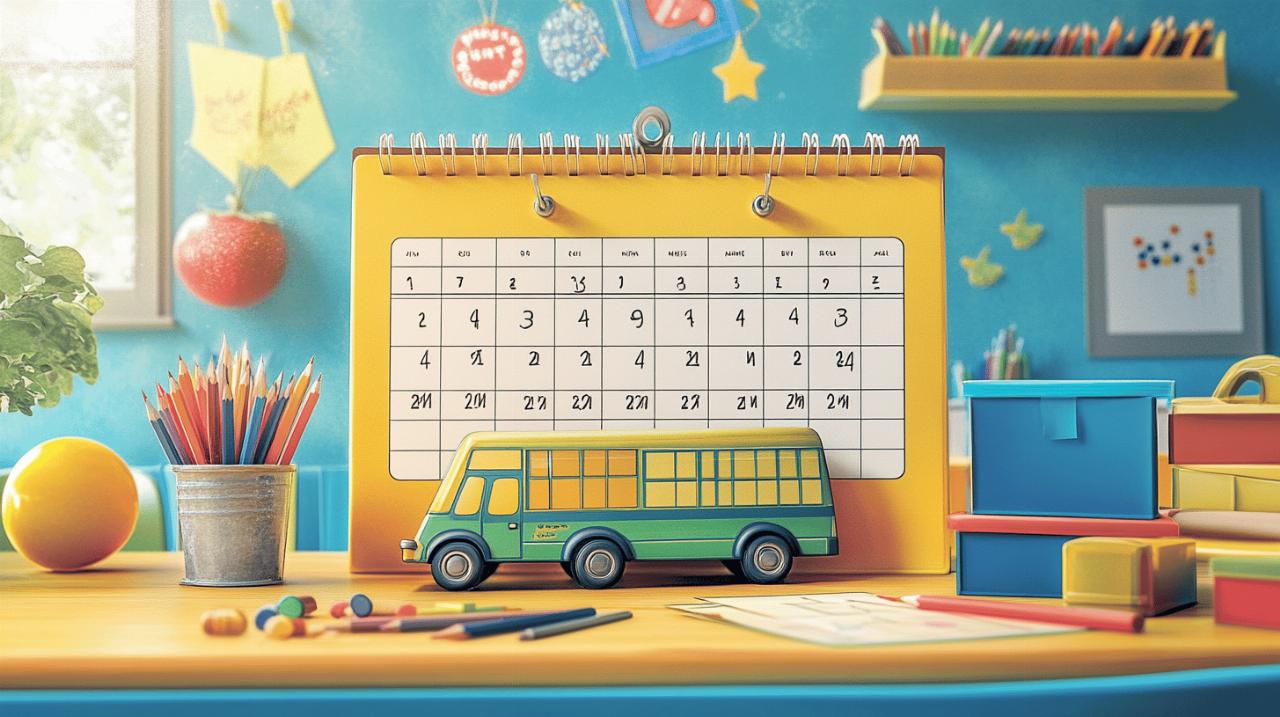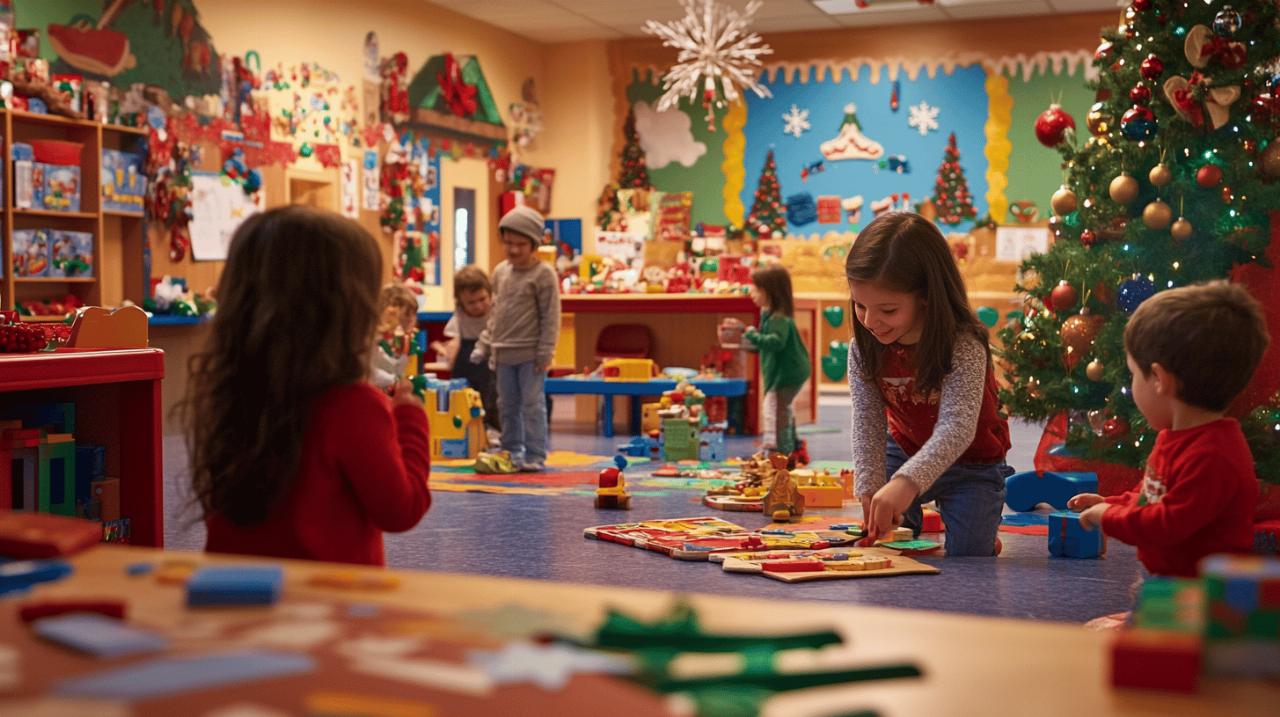Organising family life around the academic calendar can often feel like piecing together an intricate puzzle, but having the right information at your fingertips transforms this challenge into an opportunity for quality time together. The Rennes school holiday calendar for the academic year 2021-2022 serves as an essential tool for parents seeking to balance work commitments, travel plans, and family activities throughout the year. By understanding the structure of term breaks and learning how to strategically plan around these periods, families can create memorable experiences without the stress of last-minute arrangements.
Understanding the Rennes Academic Calendar Structure for 2021-2022
The academic calendar in Rennes follows a carefully structured system designed by the French education authorities to balance learning periods with necessary rest breaks. This framework divides the school year into distinct terms separated by holiday periods, each serving a specific purpose in the rhythm of the educational cycle. The calendar reflects both pedagogical considerations and the practical needs of families across the region, ensuring that students have regular opportunities to recharge whilst maintaining continuity in their learning journey.
Key Dates and Term Breaks Throughout the School Year
The academic year begins in early September and continues through to early July, punctuated by several holiday periods that provide natural breaking points for family planning. The first significant break comes with the Toussaint holidays in late October, offering a fortnight for families to enjoy the autumn season. This is followed by the Christmas holidays, which typically span two weeks over the festive period, giving families ample time to celebrate and travel. The winter break arrives in February, whilst the spring holidays fall in April, each providing approximately two weeks of rest. The calendar also includes the Ascension bridge period in May, which can be extended depending on how the dates fall, and culminates with the summer holidays beginning in early July, stretching until the new academic year commences.
How the Rennes Zone Differs from Other French Academic Regions
France divides its territory into three academic zones to stagger winter and spring holidays, thereby reducing congestion at ski resorts and holiday destinations. Rennes belongs to Zone B, which shares its calendar with several other regions across the country. This zoning system means that whilst the Toussaint and Christmas breaks remain consistent nationwide, the winter and spring holidays vary by several weeks between zones. Understanding this distinction becomes particularly important when coordinating with extended family members who may reside in different zones or when planning travel during peak holiday periods. The staggered approach helps distribute the demand for tourist accommodations and transport more evenly, potentially offering families in the Rennes zone either quieter destinations or more competitive pricing depending on the timing of their chosen break.
Strategic Planning Tips for Family Holidays Using the School Timetable
Effective family planning requires more than simply noting dates on a calendar; it demands strategic thinking about how to maximise each opportunity whilst working within practical constraints. The school holiday calendar provides a framework, but the real art lies in transforming those dates into meaningful experiences that suit your family's unique circumstances and interests. By approaching the calendar with intentionality and flexibility, parents can create a year filled with both adventure and relaxation.
Maximising half-term breaks for budget-friendly getaways
The shorter holiday periods throughout the year present excellent opportunities for cost-effective family trips that don't require extensive time away from work or drain annual leave allowances. The Toussaint break in autumn offers mild weather perfect for exploring regional attractions or visiting nearby cities without the summer crowds. Similarly, the winter break provides a chance to experience snowy landscapes or cosy countryside retreats at more reasonable rates than during the peak Christmas period. When planning these shorter getaways, consider destinations within a few hours' drive or train journey from Rennes, which eliminates costly flights and maximises time at your destination. Booking accommodations well in advance and remaining flexible with exact dates within the holiday period can yield significant savings whilst still providing a genuine break from routine.
Coordinating work leave with school holiday periods
Aligning parental leave with school holidays requires forward planning and clear communication with employers, ideally establishing your holiday intentions several months in advance. Many workplaces experience increased leave requests during school holiday periods, so submitting your requests early improves the likelihood of approval. Consider which breaks are most important to your family and prioritise those when allocating your annual leave allowance. Some families find success in alternating between parents taking time off for different breaks, whilst others prefer to concentrate their leave during one or two major holiday periods. The bridge days around public holidays such as Ascension can be particularly valuable, as taking just one or two days of leave can create extended breaks without depleting your annual allowance significantly. Maintaining open dialogue with colleagues about holiday planning can also facilitate cooperative scheduling that accommodates everyone's needs.
Making the Most of Each Holiday Period Throughout the Year
 Each break in the academic calendar offers distinct characteristics and opportunities shaped by the season, duration, and positioning within the year. Rather than viewing all holidays as interchangeable, recognising the unique potential of each period allows families to create a varied and enriching yearly rhythm. This approach prevents holiday fatigue and ensures that different family members' interests and needs are addressed throughout the year.
Each break in the academic calendar offers distinct characteristics and opportunities shaped by the season, duration, and positioning within the year. Rather than viewing all holidays as interchangeable, recognising the unique potential of each period allows families to create a varied and enriching yearly rhythm. This approach prevents holiday fatigue and ensures that different family members' interests and needs are addressed throughout the year.
Autumn and Winter Break Opportunities for Family Activities
The Toussaint holiday arrives at a time when autumn colours transform the Brittany landscape, making it ideal for outdoor activities such as forest walks, apple picking, and exploring coastal paths before winter weather sets in. This break is particularly well-suited to cultural pursuits, with museums and historical sites offering engaging experiences without the summer tourist rush. The Christmas holidays naturally lend themselves to festive activities, from visiting seasonal markets to enjoying traditional celebrations with extended family. This longer break also provides time for children to pursue hobbies or interests that school term constraints limit, whether that involves creative projects, sports camps, or simply enjoying unstructured play time. The winter break in February presents an opportunity for families interested in winter sports to access ski resorts, or alternatively to escape to warmer climates if budget and preferences allow. For those remaining local, this period can be dedicated to indoor activities, catching up with friends, or tackling home projects as a family.
Spring and summer holiday planning strategies
The spring break coincides with milder weather and the awakening of nature, making it perfect for outdoor adventures such as cycling trips, garden projects, or exploring regional parks and nature reserves. This period also marks an excellent time for city breaks to destinations that might be uncomfortably hot in summer, allowing families to explore cultural offerings in pleasant conditions. The extended summer holiday from July onwards represents the pinnacle of family planning opportunities, offering sufficient time for more ambitious travel plans, extended visits with distant relatives, or enrollment in summer camps and activity programmes. Balancing structured activities with unstructured time becomes particularly important during this lengthy break, ensuring children have both enriching experiences and the freedom to relax and recharge fully before the new academic year. Some families find value in dividing the summer into distinct phases, perhaps spending the first weeks on holiday travel, the middle period on local activities and day trips, and the final weeks preparing for the return to school routine.
Practical Tools and Resources for Keeping Track of School Dates
Even the most carefully planned family schedule can falter without effective systems for tracking important dates and managing the inevitable changes that arise throughout the year. Establishing reliable methods for monitoring the school calendar and maintaining family coordination ensures that opportunities aren't missed and that all family members remain informed about upcoming plans.
Creating your own family planning calendar system
A centralised family calendar visible to all household members forms the foundation of effective planning, whether this takes the form of a traditional wall calendar in a high-traffic area or a shared digital calendar accessible across multiple devices. Recording not only the school holiday dates but also associated deadlines such as booking dates, payment schedules, and preparation tasks helps prevent last-minute rushes. Many families benefit from colour-coding different types of activities or assigning each family member their own colour, making it instantly clear who needs to be where and when. Regular family meetings to review the upcoming weeks and months ensure everyone understands the plan and has opportunity to voice concerns or preferences. Some families find value in maintaining both a master calendar showing all commitments and individual calendars for each child, helping older children develop their own organisational skills whilst keeping parents informed.
Staying Updated on Calendar Changes and Announcements
Whilst published school calendars provide the framework for family planning, occasional adjustments or additional information may emerge throughout the year that affects your arrangements. Maintaining regular contact with your children's schools through newsletters, parent communication platforms, and attendance at parent evenings ensures you receive timely updates about any calendar modifications or special events. Many schools now offer digital communication tools that send automatic reminders about upcoming holidays and important dates, which can be integrated into your family calendar system. Setting aside time at the beginning of each month to review the school calendar alongside your family commitments helps identify potential conflicts or opportunities that might otherwise be overlooked. Building flexibility into your plans where possible creates resilience against unexpected changes, whether these stem from school calendar adjustments or personal circumstances. By combining structured planning with adaptable systems, families can navigate the academic year with confidence, transforming the school holiday calendar from a potential source of stress into a valuable tool for creating meaningful family experiences throughout 2021-2022.




